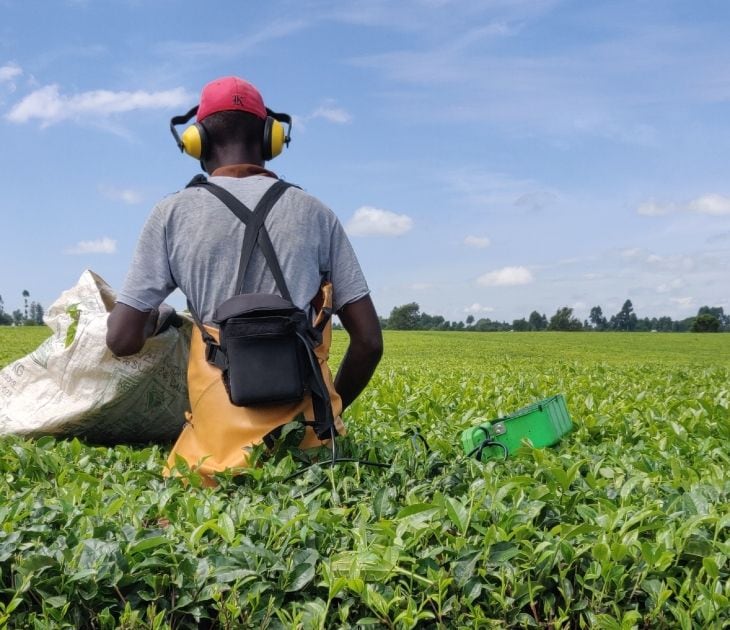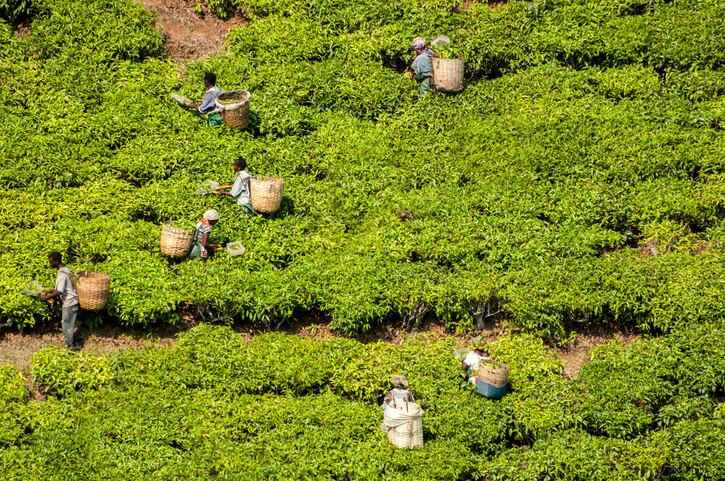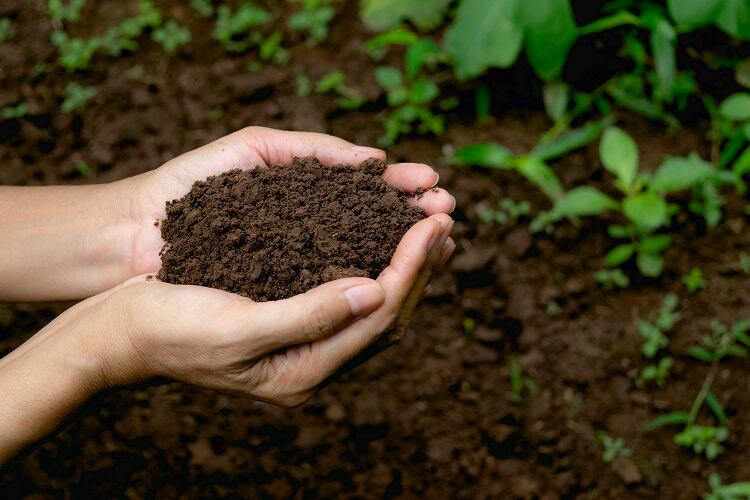The supermarket has revealed new measures to increase transparency of its tea supply chain and go beyond existing requirements to certification schemes. The measures form part of the discounter’s first published Human Rights Impact Assessment (HRIA), in which it will share the impact of its operations on human rights within the tea supply chain.
Lidl was bottom in Oxfam’s 2019 annual Supermarket Scorecard which assesses supermarkets on their published human rights safeguards. Oxfam’s report last year looked at 16 supermarkets in four countries. Five of the biggest six UK supermarkets subsequently committed to carry out an HRIA. Lidl is the first to publish its assessment.
“We are proud to be the first UK retailer to publish a human rights impact assessment, particularly given it is related to our Kenyan tea, a key commodity for our business and loved by our customers,” said Martina Petrovic, Lidl GB head of corporate social responsibility.
“It has been a great insight for us to learn more about our suppliers and growers in Kenya and understand where the decisions we make can have an impact on local communities and workers we rely on within our supply chain.
“This report represents a fundamental step towards greater supply chain transparency, and further demonstrates our firm commitment to providing affordable, high-quality produce that is good for the planet, good for producers and good for people.”
Lidl’s HRIA includes an action plan that focuses on four areas:
- Increasing the impact of certification schemes – A commitment to working with key stakeholders, including Fairtrade and The Rainforest Alliance, to help increase the positive impacts of certification schemes as well as tackling any potential challenges.
- Engaging directly with Kenyan stakeholders – Working with the supply chain to keep understanding its impacts better and to directly mitigate the risks that have been identified.
- Adapting purchasing practices – Strengthen buying practices by introducing new methods of assessment, such as an ethical supplier scorecard, that will go beyond current requirements for suppliers.
- Supporting systemic change in the tea sector - Continue to develop supply chain transparency and support collaborative approaches to tackling systemic issues, such as working towards living wages.
Lidl is now targeting more support for women and smallholder farmers, areas where it fell short in the 2019 Oxfam report. It also has targets ensuring that 100% of its own brand black, rooibos and green tea, and 75% of its fruit and herbal tea comes from accredited schemes.
In partnership with independent experts Ergon Associates, Lidl said it looked at “how even the smallest decision had the potential to directly or indirectly impact internationally recognised human rights within its Kenyan tea supply chain”. The retailer says it has used the information to “leverage its scale and buying power to drive meaningful change”.
A Lidl spokesperson told FoodNavigator: “The action plan has been developed to take all findings into account, working with a number of different stakeholders over an initial period of two years. A follow up report in 2022 will indicate actions taken so far, learnings along the way and next steps.”
One project to be piloted in 2021 aims “to ensure that through our buying tender processes, suppliers we work with are selected based on multiple criteria, including a selection of corporate social responsibility (CSR) and human rights objectives, not solely buying objectives”.
It will also “incorporate new processes, such as pre-tender performance assessment into the role of our buying teams, that will review broader CSR criteria alongside certification, as part of the supplier selection process”.
“Farmer incomes are dependent on a number of factors, some of which are out of Lidl’s direct business control. This is why collaboration with our suppliers, multi-stakeholder initiatives (MSI), NGOs, other food retailers and certification bodies is crucial to work towards sustainable improvements.”
“By working with MSIs we will work collaboratively with other retailers and all areas of the tea supply chain to understand an approach that will collectively make sustainable improvements to workers incomes and work towards living wages in the tea sector.”
Lidl has also committed to conducting three further human rights impact assessments by 2025. These will include reports on its Spanish berries and South American bananas in the next 12 months. It also plans to publish supply chain transparency information about other high-risk supply chains including tea, bananas and seafood, the spokesperson added.

‘A step in the right direction’
Lidl has risen two places up the table to fourth in Oxfam’s 2020 annual Supermarket Scorecard. The charity, which is currently formulating a full response to Lidl, said it is encouraged by the latest commitment.
"At this stage, we recognise it as a step in the right direction and we think more of these kinds of studies will drive positive change,” Rachel Wilshaw, Workers' Rights Senior Manager at Oxfam GB, told FoodNavigator.
Since the first scorecard three years ago, she said, supermarkets as a whole “are acknowledging problems in a way they were not before… we are pleased the improvements that we've witnessed.”
But she added that many hidden problems exist in food supply chains.
“The people supplying the food that we go and buy from supermarkets are getting a raw deal. They get low wages, extremely long working hours; women don't get a fair crack of the whip; smallholder farmers are having a difficult time.
“If you look at the amount of value in a basket of products including fruit and vegetables, tea, coffee, cocoa, seafood, compared with 20 years ago, supermarkets are taking a higher share of the value of those products, and farmers and workers are getting a lower share than they did 20 years ago. The market is driving in the wrong direction for equity in supply chains.”
Many reports of human rights abuses highlighted by Oxfam have served to strengthen supermarkets’ due diligence processes, she said. Last year, there were human rights abuses in 11 different countries producing fish and seafood, including in the UK and Ireland. In the UK, for example, a trafficking gang has been jailed for enslaving workers who, amongst other jobs, harvested spring onions for UK supermarkets.
“In the Ghanaian cocoa and Indian tea industries, a study found ‘employers profit from forced labour by using it to reduce the cost of business,” added Wilshaw. “Migrant workers have been found living and working in appalling conditions in Italy, picking tomatoes and other produce, which the mafia reportedly find more lucrative than drugs. Farmworkers have died in hot Californian fields, unable to reach drinking water.”
According to an Oxfam report into on South East Asian seafood sector in 2018, wages in shrimp processing were so low that over 60% of women surveyed were categorised as severely food insecure and extensive overtime was reported as routine. Workers peeling shrimp in Indonesia could earn less than 2 Euro cents for peeling a 225g pack of shrimp that sells in Dutch supermarkets for €5.
Back in the UK, Oxfam estimates that supermarkets and tea brands receive 66.8% of the final consumer price for bagged black tea sold in the country, while labour costs to pay workers represent just 4% of the final price. Oxfam’s newly commissioned estimates show that the difference between current wages and a living wage for Assam tea workers is only $0.06 cents per 100g pack.
A harmonious approach
Oxfam says it wants to engage constructively with retailers to address human rights abuses it identifies in supply chains. "We don't want boycotts of supermarkets,” said Wilshaw. “Shoppers want to be able to shop with a clear conscience… We want people to make it clear to those companies that consumers care about these issues and want supermarkets to take positive action."
A recent consumer survey in 23 countries found that three-quarters of respondents feel it is important to buy ‘ethical food’ produced in socially and environmentally responsible ways. Another survey in the US, UK and France found 71% of respondents, especially the under-25s, were concerned about the governance of issues such as workers’ rights. One in three consumers in the Netherlands have said that they would consider switching to a supermarket that is more committed to the fair treatment of workers.
Ethics vs profits
Can consumers expect to have to be prepared to pay more for products as a result of more transparent and accountable human rights practices in supermarket supply chains?
"Not necessarily,” responded Wilshaw. “Fair Trade costs a little bit more and it makes a massive difference. There is so much these companies can do which doesn't involve consumers having higher prices.”
The Malawi Tea 2020 partnership, for example, improved wages for 50,000 workers without impacting tea prices for end consumers.
Investors are also increasingly keen to ensure human rights impacts are addressed, believes Wilshaw. A group of 50 investors with c$3.1 trillion of Assets Under Management have signed onto an Investor Statement to support the aims of Oxfam’s campaign, for example.
Wilshaw also notes that trends in shareholder proposals (which ask for publicly-traded companies to take a particular course of action – usually submitted at an Annual General Meeting) reflect this attitude. “Not only is support for resolutions on ESG issues rising, but there has been a sharp rise in proposals asking companies to monitor and disclose the treatment of workers in their supply chains,” she said. “If investors say this matters, then the companies sit up and listen and in the last few years we've seen far more investors say this matters”



